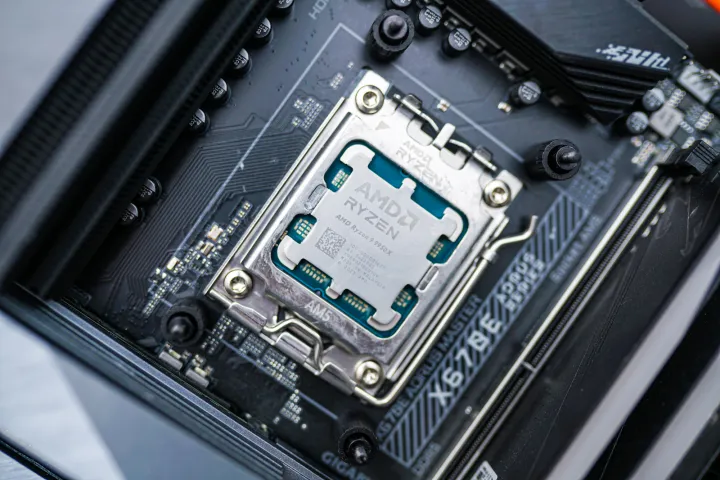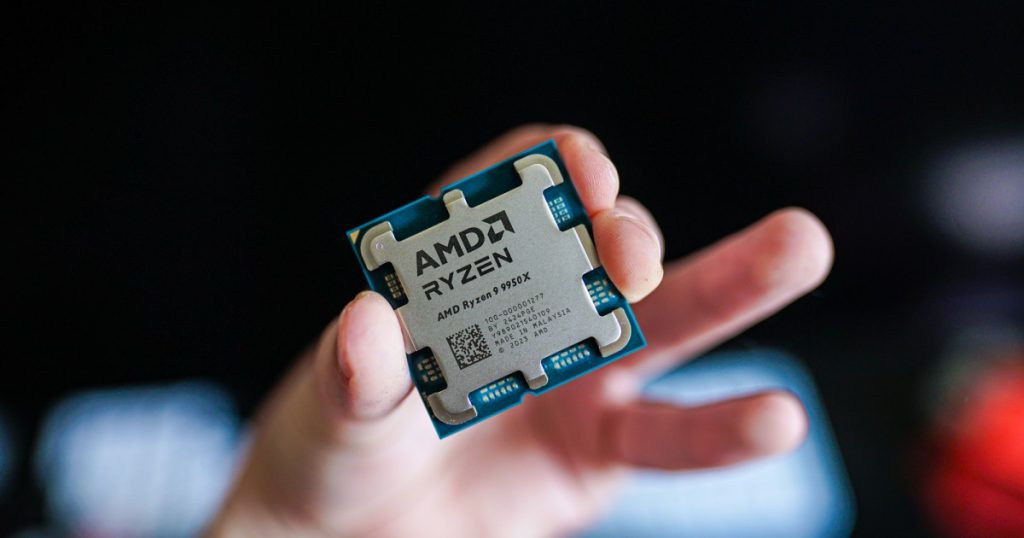AMD’s Ryzen 9000 series is encountering a challenging reception in the desktop CPU market. Reports indicate that the Ryzen 9000 series has experienced low sales just over a month since its release, marking one of AMD’s most disappointing launches since the ill-fated Bulldozer architecture in 2011.
This downturn has significant implications for AMD’s competition against Intel, especially considering the momentum it had with previous Ryzen generations.
Retail Struggles and Global Impact
Retailers in various regions are reporting poor sales numbers for the Ryzen 9000 series. For example, TechSpot reports that Australian retailers have described this as the worst Ryzen launch since AMD first introduced the brand. Some stores even reported selling only single-digit figures within the first few weeks.
Get your weekly breakdown of the technology behind PC gaming
As highlighted by Hardware Unboxed, popular German retailer Mindfactory sold only 160 units of the Ryzen 7 9700X after a month on the market. In comparison, Ryzen 7000 CPUs had significantly higher sales during the same post-launch period.
Sales in the U.S. market are also sluggish. Both Newegg and Amazon’s “Best Sellers” lists reflect the slow sales of AMD’s Zen 5 CPUs, with no Zen 5 models making it into the top 20 on Newegg. On Amazon, the Ryzen 9 9700X ranks modestly at 28th place, while the higher-end Ryzen 9 9950X sits at 32nd place. This data underscores the poor adoption and consumer preference for older or alternative models.
Many consumers do not see enough performance improvement from Zen 4 to Zen 5 to justify an upgrade, especially considering pricing.
Performance Disappointment

Despite promising a 16% uplift in IPC compared to Zen 4, the real-world performance of the Ryzen 9000 series has not justified the higher prices. Core counts have stagnated, and the slight increases in clock speeds have not made these CPUs more attractive over previous models, leading many potential customers to stick with the established Ryzen 7000 series.
The performance gap between the Ryzen 9000 series and Intel’s offerings exacerbates the issue. While offering decent gen-on-gen gains and impressive productivity performance, the Ryzen 9000 series falls short in gaming performance compared to Intel’s processors.
Impact on Pricing and Stock of Older CPUs

The underwhelming performance of Ryzen 9000 has impacted the market for older AMD CPUs, particularly the Zen 4-based Ryzen 7000 series. As demand for Zen 5 decreases, demand for the Ryzen 7 7800X3D has surged, leading to price increases. Older Zen 4 processors have seen price drops, making them more attractive to budget-conscious consumers.
Retailers are promoting flash sales and discounts on Zen 4 processors, as Zen 5 lags in sales. This competition between Zen 4 and Zen 5 has put AMD in a challenging position in the CPU market.
Despite AMD’s strong reputation, the Ryzen 9000 series has faced challenges, lacking significant improvements over previous generations to drive consumer adoption.


